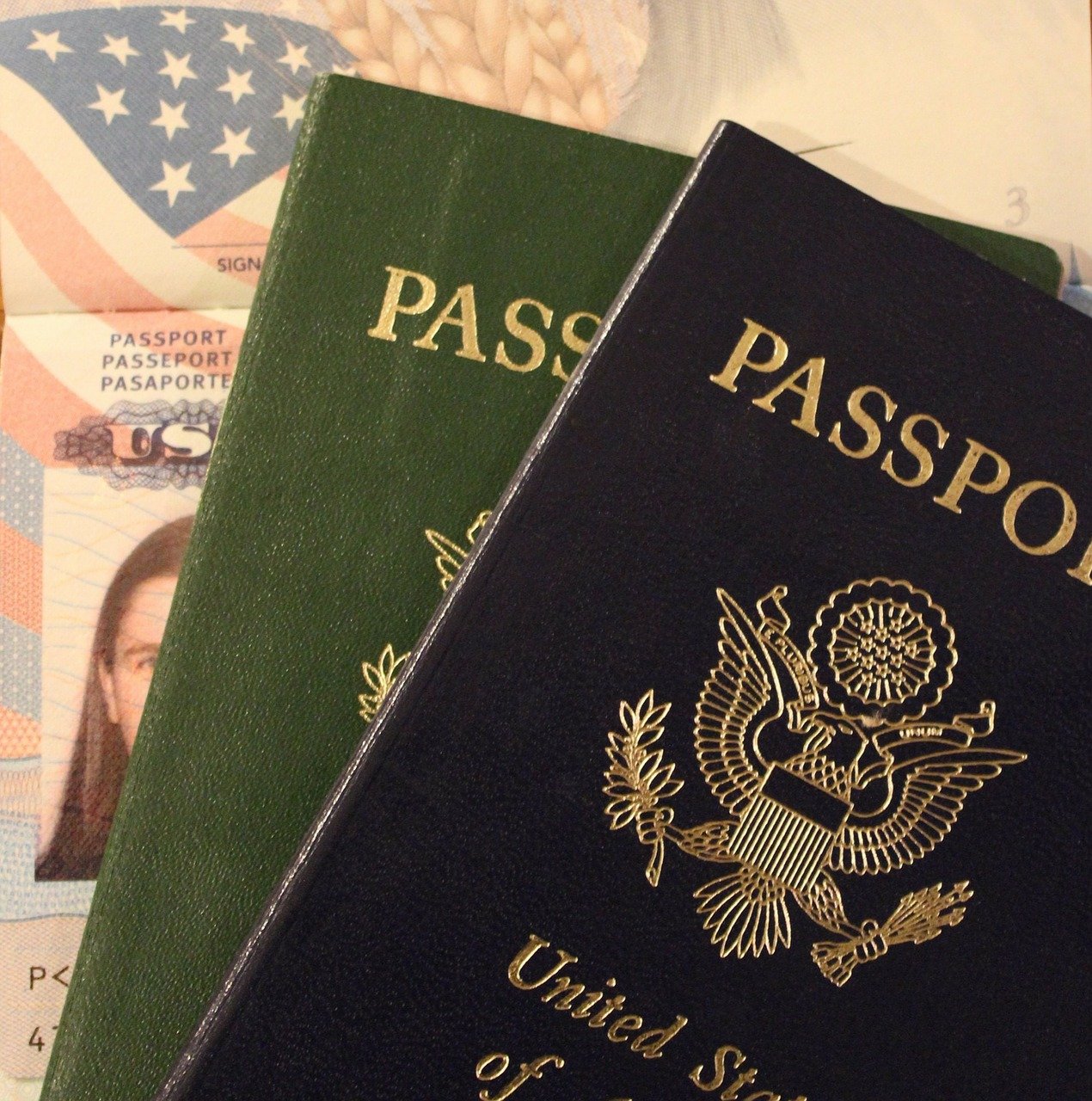In this section, we cover the FAQs regarding Visas. Click on the link below to find out more about each section:
What Are Some Key Advantages of Securing a U.S. Business Visa
Requirements and Eligibility of E-1 Visas
Top E-2 Visa Questions and Answers
General Visa FAQs

What Are Some Key Advantages of Securing A U.S. Business Visa?
Work Legally for Sponsor Company
You will have the ability to work and earn income from the company that sponsors your visa. You will be able to draw a salary, bonuses, commissions, etc. but will only be able to work as a W2 employee (not as an independent contractor).
Moderate Capital Investment Requirements & Costs/Fees
The capital requirements for most visas are relatively manageable, for example, although there is no specific minimum investment requirement for an E2 visa, the rule-of-thumb is in the range of $100,000, which is a reasonable investment threshold to start/purchase a business in the U.S.
SPOUSE CAN WORK & KIDS CAN GO TO SCHOOL
Once the E2 is granted, the E2 beneficiary’s spouse will be eligible to secure an employment authorization which is actually allows him/her significant discretion to work for any U.S. authorized employer, and the kids will be able to attend school.
Able To Travel Freely (Not so with Change of Status)
Most visas allow the beneficiaries to come-and-go freely, without restriction. Until you are in Green Card status, there is no residency requirement, so you do not need to be in the U.S. for any specific duration to maintain your visa. You have flexibility and freedom!
Unfortunately, if you obtain a visa through a change-of-status process, your travel will be limited since as soon as you leave the U.S. to travel anywhere, your “in-visa” status will be lost.
Renewable – Can Stay Indefinitely
Many visas allow for unlimited renewals, provided that your business remains as a “going concern” and you continue to meet the relevant visa requirements, which can translate to indefinite stays.
Obtain U.S. Social Security Number
Once you secure your visa, you will be able to obtain a U.S. Social Security Number. This is the key form of identification that will be used for all financial and related matters. Essentially, this is your ticket to function in the U.S.!
Build U.S. Credit & Access Mortgages/ Financing
Once you have your U.S. SSN you will be able to build personal credit, apply for loans, apply for mortgages, lease vehicles, etc. This will not happen overnight, but with the right guidance you can make it happen relatively quickly.
Legal Status In The U.S.
This is the key – you will have status in the U.S. You will be able to operate as most other U.S. residents and citizens operate, and will have freedom and flexibility. You will not be discriminated against and will have many opportunities that were not previously available to you.
Can Freely Invest In Real Estate & Other Endeavors
The freedom and flexibility afforded through a visa is incredible. You will be able to pursue a variety of investments and business endeavors in industries such as real estate, technology, finance, etc.
Relatively Quick & Painless Process (With The Right Team!)
With the right team working with and for you, the process of securing and maintaining your visa will be relatively quick and painless. Timelines are returning to normal post-pandemic, the Consulates are opening and granting interviews efficiently, the doors are open for business and YOU will have the opportunity to pursue your entrepreneurial dreams in the amazing American marketplace – and to pursue your version of the American Dream.
The key here is the “team” as without the right team you will surely hit roadblocks and obstacles and end up spending excessive amounts of wasted time and money to cut corners. Being penny wise and pound foolish can be hugely detrimental during the visa process, but the right team can – and does – make all the difference!
Here are just some of the benefits of working with e-Council Global?
-Harmonized approach which avoids problems that arise from having a variety of different providers that are not overseen or coordinated
-One-stop shop with single point-of-contact
-Accountability & Responsiveness
-Results-oriented with proven track record
-Not having to search for professionals as we have a vetted network of which our team is comprised
What if I don't ever plan to move to the U.S.?
It is important to understand that you may need (or want) a visa for ease of travel and running your US business, whether you ever plan to move to the U.S. or not! We work with many clients whose US business is substantial, but they do not plan to move away from their home country for a variety of personal and business reasons, yet can enjoy the benefits of having a visa stamped into their passport which accomplishes the goals above while allowing the holder the freedom to decide if (s)he wishes to move to the US at some point during the term of the visa!
E-1 Trader Visa FAQs
Overview
An E-1 Visa is available for foreign nationals who wish to live in the U.S. based on international trade that exists between the U.S. and the Treaty Country.

Requirements and Eligibility of E-1 Visa
There are 3 key requirements for the E-1 Trader Visa:
You Must Be a National of a Treaty Country - The E-1 Trader Visa is only available to people from the countries with which the U.S. has a Treaty.
2. You Must Carry On Substantial Trade of Goods or Services between the Treaty Country and the U.S.
In order to satisfy this part of the test, you must fulfill the following requirements.
Substantial is not defined in the statute but the higher the volume of trade (in terms of number of transactions) and dollar value the better.
Sustained trade over $100,000. Trade under $100,000 would generally be too low and the trade should be sustained over a period of time (usually at least a year but shorter times could be considered).
Trade must be ongoing. As such, normally only existing businesses will qualify.
The trade between the Treaty Country and the U.S. must represent at least 50% of the total international trade of your business.
Must be able to produce extensive documentation regarding the trade that has occurred over a period of time.
3. You must intend to return to your Home Country after your E-1 visa expires.
Application Process
You can apply for an E-1 Trader Visa one of 2 ways:
1.Applying for an E-1 Visa While in the U.S. (in E-1 Status)
If you are currently in the U.S. on a different type of visa, you can file a petition to change your status to a “in E-1 status” with the United States Citizen and Immigration Services (USCIS). This petition is document-intensive, and you must provide documentation to support all of the elements outlined in the E-1 visa requirements. It is important to note that the change of status does NOT permit you to reenter the country the way an E-1 visa would. E-1 status is typically granted for a 2-year period. Finally, if you have dependents on your visa that are also in the U.S. (e.g. H-4) and you want to change their status, you must also file for this separately. Note: If you leave the U.S. while in E-1 Status you will need to re-apply for the E-1 status before being granted entry.
2. Applying for an E-1 Visa at a Consulate (Obtaining an E-1 Visa)
If you are outside of the U.S., you must file your petition online at the consulate’s website. E-1 visas are typically granted for between 2 & 5 years, and you are permitted to leave and enter the U.S. whenever you like. If you have dependents, separate applications must be completed for them.
How are family members treated?
E-1 Treaty Traders can get an E-1 derivative visa for the spouse and children under 21. The spouse can get work authorization but the children cannot. All parties may attend school in the U.S..
Here are the top E-1 visa questions and answers:
E-2 Visas FAQs
Overview
An E-2 Visa is a Visa Classification that is available for foreign nationals who wish to live (and work/run their businesses) in the U.S. and are actively involved in developing and directing the operations of a business. As of today, the E2 visa is NOT a direct path to a Green Card, however there are ways to pave the path to a Green Card for E2 visa holders.


Requirements & Eligibility
There are 6 key requirements for the E-2 Visa:
1. You Must Be a National of a Treaty Country - The E-2 Investor Visa is only available to people from the countries with which the U.S. has a Treaty.
2. You Must Have Invested or Be Actively in the Process of Investing in the Enterprise - This involves these 3 requirements:
a) Show Legitimate Possession and Control of the Funds
You must invest funds that you have obtained by lawful means and you must be able to provide a paper trail to the government showing that you either received the funds as a gift, we able to save the funds or legitimately earned the money. There are various forms of proof that will satisfy this requirement including tax returns, bank statements, investment accounts, and more.
b) All Funds Invested Must Be “At Risk” and Irrevocably Committed
All of the assets invested must be personal assets subject to risk of loss. You must personally be “on the hook” for repayment of any funds borrowed or credit card debt incurred for any requirement that forces you to sign contracts and/or spend money prior to the approval of the Visa. The “risk” must be personal (not on behalf of a corporate entity/business)
c) You Should be About to Start or have Already Started the Business
While you cannot accept money from clients or “do business” until the Visa is approved, your business must be at the “start up ready phase” (lease signed, business bank account set up, materials purchased).
3. You Must Be in a Position to “Develop & Direct” the Business With Skills
You cannot get the E-2 Visa unless you are the one that is going to direct and run the business. The U.S. government will expect to see that your educational background or personal experience with the business qualifies you to “Develop and Direct” a successful business.
4. Your Investment Must Be Substantial
The U.S. government does not have a predetermined amount that they consider substantial and considers each application on a case-by-case basis. It is worth noting that idle cash sitting in a business account is NOT considered an investment, but the government will consider a reasonable amount of working capital as part of an investment. For example, Lauren uses the threshold of a $100,000 investment as a rule of thumb.
5. Your Investment & Business Cannot Be Marginal
Your business plan must show a good rate of expected growth over a 5-year period or by showing that you plan to hire employees in the future and improve the welfare of the community.
6. You Must Intend to Return to Your Home Country After Expiration of the E-2 Visa
This is not a difficult test to meet because the requirement is only that you must do is sign a document that indicates you plan to return home once your visa expires. Unlike many other visas, you do not have to show any financial ties to your home country.
Application Process
You can apply for an E-2 Visa one of 2 ways:
Applying for an E-2 Visa While in the U.S. (in E-2 Status)
If you are currently in the U.S. (in legal status), you can file a petition to change your status to “in E-2 status” with the United States Citizen and Immigration Services (USCIS). This petition is document-intensive (similar to the E-2 application itself) and you must provide documentation to support all of the E-2 visa requirements. It is important to note that the change of status does NOT permit you to leave/re-enter the country as an E-2 visa permits; you are restricted from travel outside of the U.S., and if you do leave, your “in E-2 status” will be compromised. Note that this status is typically granted for a 2-year period. For many of our clients, this is a good stop-gap measure while waiting for your Consular interview (especially in light of the long delays due to COVID closures, backlogs, etc.)
2. Applying for an E-2 Visa at a Consulate (An E-2 Visa)
Traditional E-2 visas are typically granted for between 2 & 5 years, depending on reciprocity (see this link for details). With a traditional E2 visa, you can depart and re-enter the U.S. any time, without restriction ie: freedom of exit and entry. If you have dependents, you will need a separate application for each of them.
Currently, the main challenge with Consular processing is the long delays due to COVID closures and resulting backlogs, which has put a damper on this more common method of securing a visa.
How are family members treated?
Spouses and children under 21 can obtain a “derivative visa” as part of the E2 process. With said status, the spouse will be able to obtain a work authorization but the children can only attend school in the U.S.

Here are the top E-2 visa questions and answers:
L-1 Visa FAQs

Here are the top L-1 visa questions and answers:
Requirements for Application
1) There must be a qualifying relationship between the U.S. and foreign entities (parent company, sister organization, branch office, or subsidiary); 2) The U.S. organization must currently, or will soon be conducting business as an employer in both the U.S. and one other country for the duration of the visa beneficiary’s stay in the U.S.; 3) The alien must have been working for a qualifying foreign entity in a managerial, executive, or specialized knowledge capacity for at least one continuous year within the three consecutive years prior to entering the U.S.; and 4) The employee must intend to provide the qualified U.S. entity with similar executive, managerial, or specialized knowledge services as he or she provided the foreign entity.

Application Process
The petition must be submitted to USCIS by the U.S. entity (or foreign entity, if establishing a new office). In order for the application to be successful, petitioning employers must collect and provide the following documentation to UCSIC:
A completed I-129 Petition Form for all Nonimmigrant Worker visas, along with the L Supplement (https://www.uscis.gov/i-129);
A letter from the U.S. employer confirming that the beneficiary will be employed by them in a qualified capacity in the U.S.;
Documentation evidencing a qualifying relationship between the U.S. and foreign business entities, such as a statement by an authorized official describing relationship of ownership and control between the companies;
Documentation that shows the parent company and its subsidiaries, such as Securities and Exchange Commission filings;
Additional evidence of ownership, such as tax returns and records of stock ownership;
Financial viability, if the beneficiary is entering the U.S. to establish a new office or branch;
A letter signed by an authorized official detailing the employee’s qualifications to work in the U.S. in a managerial, executive, or specialized knowledge capacity. This includes the job duties, level of authority, as well as salary and dates of employment with the foreign entity; andSubmit the required fees.
Estimated Timeframe
Once all the required documentation has been turned in to USCIS, the application process time averages roughly three to five months. But, for an additional fee of $1,225, the petitioning employer can expedite the process through Premium Processing. By submitting Form 1-907, in conjunction with the Form I-129 and the added fee, the petitioner is provided with the Premium Processing Service, which guarantees a 15 day turn around. In other words, within 15 days of submitting the application, the petitioner will receive an approval notice, denial notice, or a Request for Evidence (RFE).
